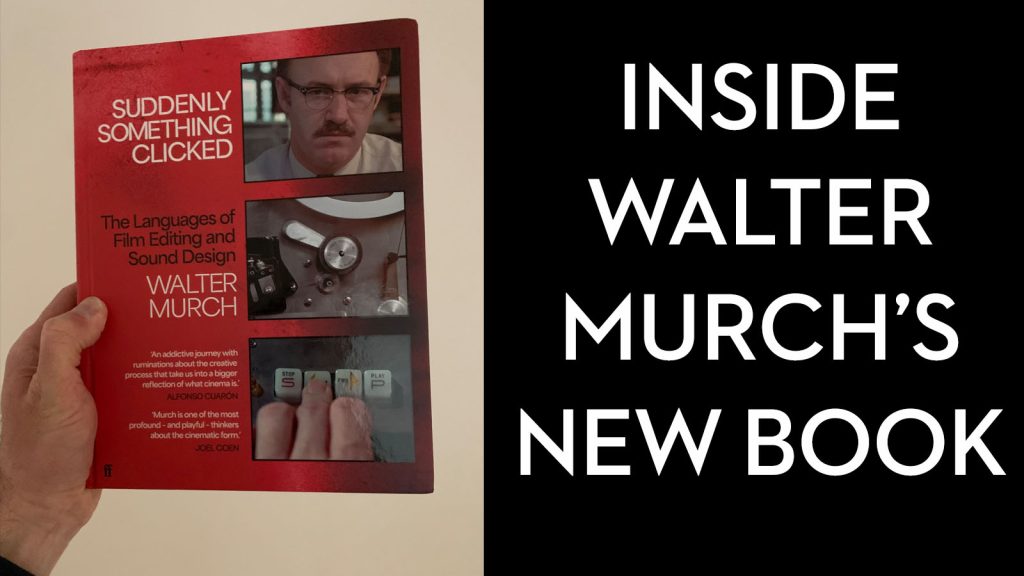
33 years after every editor’s favourite book, In The Blink of an Eye, was published, legendary editor, sound designer, and polymath Walter Murch has a new book out.
What’s it about and is it any good?
Lucky for us, I’ve got an advance copy to share with you.
Blink was first published in 1991, when I was in the middle of my career. Now I am near the end of it, at the age of eighty-one.
The two volumes of Clicked reflect that thirty-four-year difference: they cover more topics than Blink and are longer, more eclectic and speculative, looking back at the last six decades of my love affair with cinema and wondering about the future of the medium.
— Suddenly Something Clicked, p.8
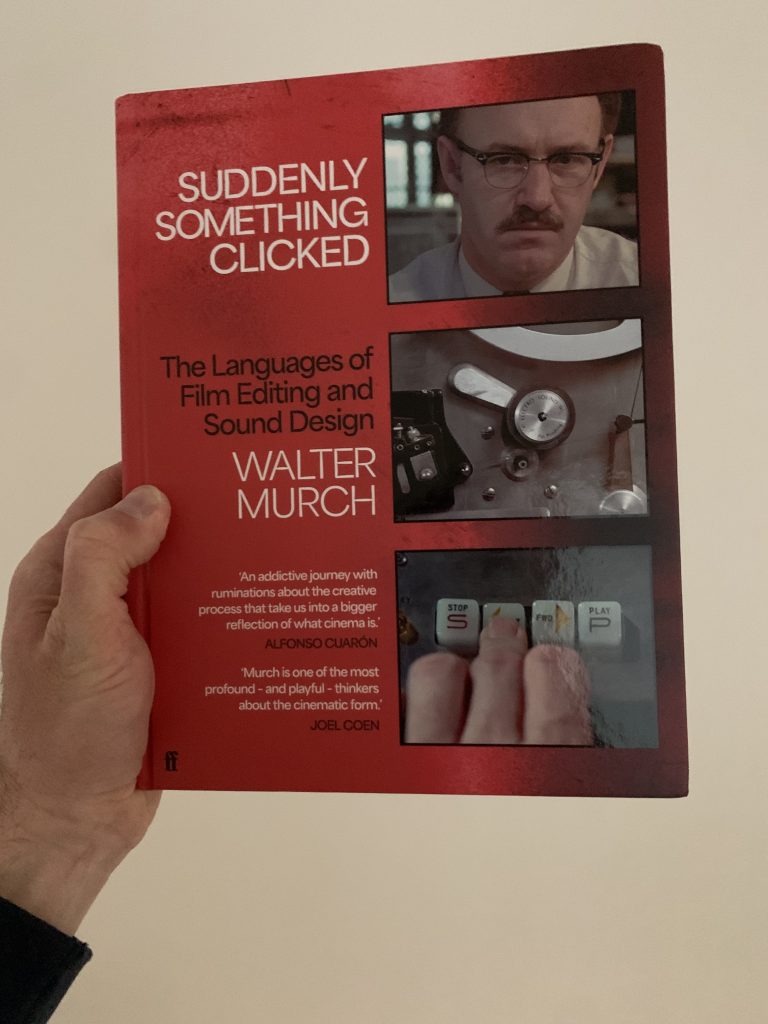
Caveat: I’ve not read the whole thing yet. It’s a bit of a tome, so these are some initial early thoughts from what I’ve read so far.
Essential Stats
Walter has been working on this book in note form for about 12 years and then spent three and a half years writing it.
That process created the two volumes of Suddenly Something Clicked, with the first focusing on film editing and sound design, while the second installment (already written) will focus on ‘writing, casting, direction, production, cinema aesthetics and philosophy…’
- Volume 1 Publication date UK: 8th May | US: July 15th
- Price: £30/$45 (Hardback) | £14.99 (ebook)
- Page count: 358
- Volume 2 – Expected end of 2025/early 2026?
Fortunes, Breadcrumbs and the Curious Mind of Walter Murch
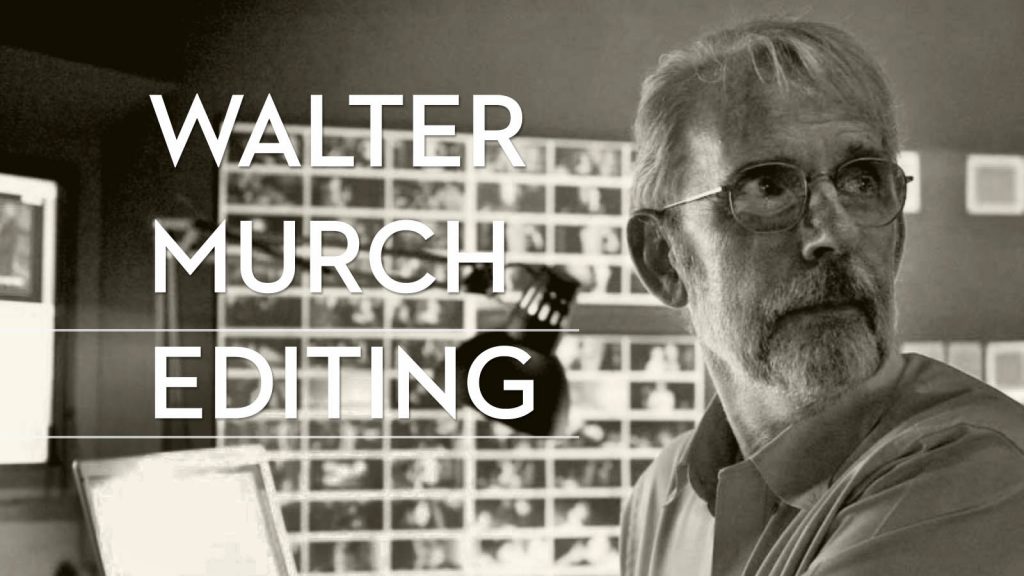
The hardback edition of Suddenly Something Clicked is a big beautiful book.
It feels weighty in the hand (both literally and figuratively).
I say this because many books on editing published these days have that floppy print-on-demand kind of feel. Which I usually find pretty disappointing. Although I understand the benefits from a ‘cost of accessibility’* perspective.
‘Clicked’ however, will make for a solid coffee table/conversation-starter book for your edit suite.
The subtitle to the book is ‘The Languages of Film Editing and Sound Design’ and Vol.1 is split into two roughly equal parts focusing on each of these crafts, reflecting Walter’s expansive career in both fields.
Walter’s original pitch for the book shapes what you’re going to read pretty accurately:
A three-braided rope – theory, practice and history – intertwined to give each of them greater strength and flexibility.
Some of the history will be short oddities from the coalface: strange cinematic predicaments where I found myself wondering if I would be able to Houdini myself out of a suddenly desperate situation.
And there will be some unexpected discoveries.
— Suddenly Something Clicked, p.5
*It’s an expensive risk to do a big print run up front when you don’t know if the book will sell. Print-on-demand means more books stand a shot at being published. Which is good for readers, writers and publishers.
This article was originally published as an issue of Cut/daily – a free weekly newsletter for post production professionals. Sign up for free today to get the next issue in your inbox.
What this book is not
In case you’re wondering, it’s not a paint-by-numbers, how-to-edit-like-Walter-Murch book.
Although, you will learn a huge amount about how he edits through his dissection, analysis and exploration of his thinking on editing.
It’s not a straight autobiography or career memoir, either.
However, there is a delightful and fascinating mix of personal history, career anecdotes and behind-the-scenes revelations from numerous films from his epic credits list.
Suddenly Something Clicked is not limited to either of these things, but it is much more than both of these things.
Just so you know what you’re getting into.
What this book is
The ideas here have been influenced by the obsessions, deficiencies and tensile strengths of my own personality and the particular history I have been privileged to witness and participate in while serving alongside the crews and captains with who I have sailed.
So take from these pages what proves useful to you and set aside that which is not, or translate it into terms that fit your needs.
— Suddenly Something Clicked, p.10
Suddenly Something Clicked is best thought of as a series of individual essays grouped around a theme. “Some chapters focus on a single theme and develop it chronologically, but the order of the chapters is not chronological.”
For example, here are a few of the chapter titles from Part 1: Film Editing
- 4. Nodality – A Defence of Film Editing as Poetry
- 5. The Droid Olympics – When Film Editing was a Competitive Sport
- 7. Tetris I – Timing and Dosage in Editing The Conversation
- 8. Tetris II – Restructuring The Conversation
Walter’s writing style is excellent.
It is thoroughly engaging, accessible, and well-paced, which is no easy task when the progression of topics each chapter can move through is so eclectic.
So a personal memory of walking with George Lucas in New York (slightly shell-shocked at how the release of Star Wars is transforming the future of the movies) blends into metaphysical observation on the nature, and philiosphical underpinnings, of sight that feels intricately woven together in a seamless cut.
As you might expect from a master editor.
“Practical advice can follow hard on the heels of metaphysics.”
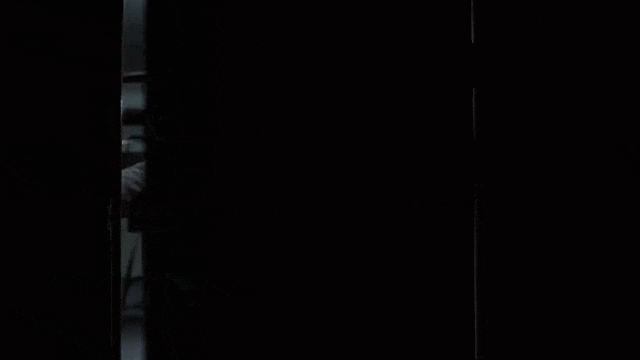
It’s like Walter Murch has opened up his cavernous mind and is giving us all a tour.
It’s definitely one for the curious.
Quirks – Fortunes, Codes and Breadcrumbs
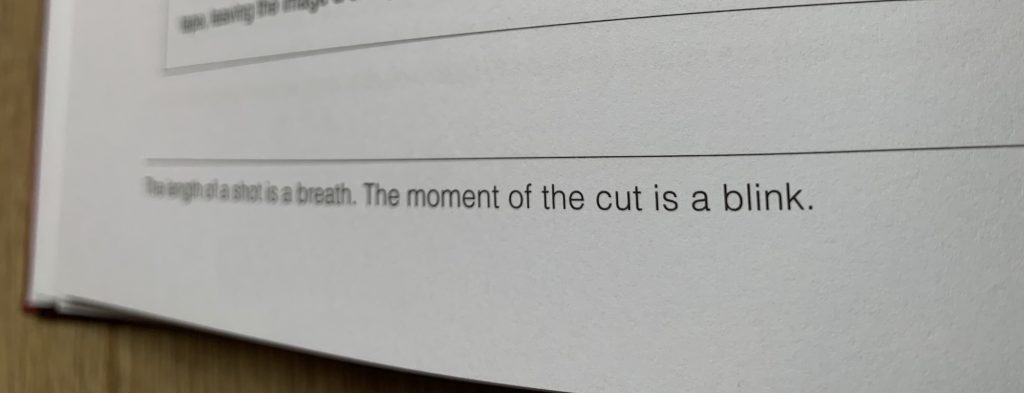
One of the surprises when opening up the book for the first time are the little aphorisms, or ‘fortunes’ (as in cookie) as Walter dubs them, that adorn 173 of the even-numbered pages.
These are taken from a diverse set of characters, although French filmmakers Robert Bresson and Jean Cocteau feature more frequently, some of which Walter personally translated.
These add a little meta-perspective on the page above, sometimes contrarian, sometimes opaque, sometimes humorous.
Here are a few of my favourites so far:
- You must believe in free will… you have no other choice (Isaac Bashevis Singer)
- Style is a simple way of expressing complicated things (Jean Cocteau)
- If there’s anything worse than not being taken seriously, it’s being taken too seriously (Billy Wilder)
- The length of a shot is a breath. The moment of a cut is a blink (Walter Murch)
QR Codes
Another quirk of the book are the QR codes that adorn the margins of numerous pages where a URL is being linked to in the footnotes.
I’m torn on these.
On the one hand, they make for an invaluable extension of the book, especially when trying to communicate the nuances of timing, movement and editorial decision making.
Yet, when I’ve sat down to read a book, holding the pages in my hands, it feels like a real distraction to stop everything and pick up a device to follow a link.
(It’s like PDF downloads for audiobooks. Who looks at those? It’s just not part of the medium we’re currently in.)
If you want to see some of these videos, you can find many of them on Walter’s Vimeo channel, although you’ll be missing the context that the book provides.
My feeling is, I’ll probably explore most these on a second reading of the book, or if the action of the paragraph so demands that I watch one, I’ll go with the flow and take a look.
Breadcrumbs
- Details of previewing Julia and other films will be found in the ‘Pandemic of Desire’ chapter of the subsequent volume of this book.
– Suddenly Something Clicked, p.19, footnote 10.
Another detail to Volume 1 of Suddenly Something Clicked are the trail of breadcrumbs foreshadowing chapters in Volume 2.
This only stokes an appetite in me to have Volume 2 in my hands right now!
But alas we’ll have to wait a bit longer.
From everything I’ve read of Volume 1 so far, it will be worth it.
A title as old as cinema itself
If you’re wondering why it’s called Suddenly Something Clicked, then I’ll spoil the reveal for you.
It’s 1896, and Russian reporter Maxim Gorky is experiencing the Lumière brother’s cinématographe, projected onto a bedsheet in an ‘elegant brothel’.
He’s unimpressed with the birth of cinema and its images of “grey, soundless, bleak and dismal life.” Yet he mentions in passing something else:
…suddenly something clicks, everything vanishes and a train appears on the screen. It speeds straight at you – watch out! It seems as though it will plunge into the darkness in which you sit.
What he had heard – that click … was the first time in history that anyone had written about the phenomenon of the cut…
– Suddenly Something Clicked, p.2
I could be wrong about this but Suddenly Something Clicked may be a better read for the more seasoned editor among us.
Those who can appreciate Walter’s contribution to cinematic history having experienced more of it directly and potentially accumulated the intellectual footing for some of the diverse rabbit holes he explores.
But maybe that’s unfair on you curious young whippersnappers.
If you are a younger editor, fresh to the game, definitely read In The Blink of an Eye first.
But obviously read both!
Personally, I’m loving it so far… I’ll have more thoughts to share in due course.
So remember, editing is still a young art form with a long way to go and cut daily.
Take This Further
This article was originally published on Cut/daily – a free weekly email delivering a concise post-production insight to 1800+ professional editors every Friday.
Dive into these articles to learn more from Walter Murch
- #315 – From Walter Murch
- #235 – Cut It Down: 3 Lessons from Walter Murch
- #104 – What Walter really meant by the Rule of Six
- #023 – Scene Cards Part 2 – Murch Notes
- The Walter Murch-o-pedia – regularly updated mega-list of Murch
- Suddenly Something Clicked on Amazon.com

